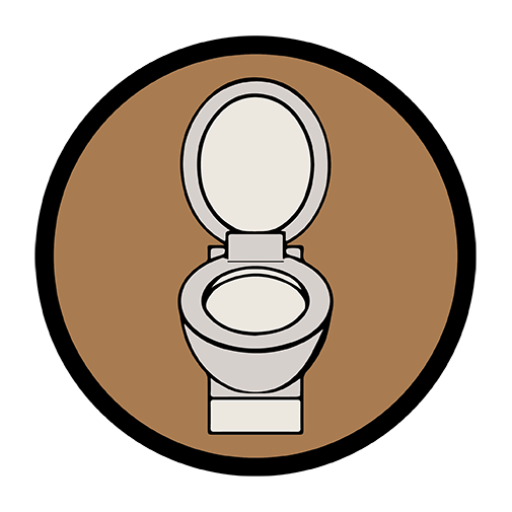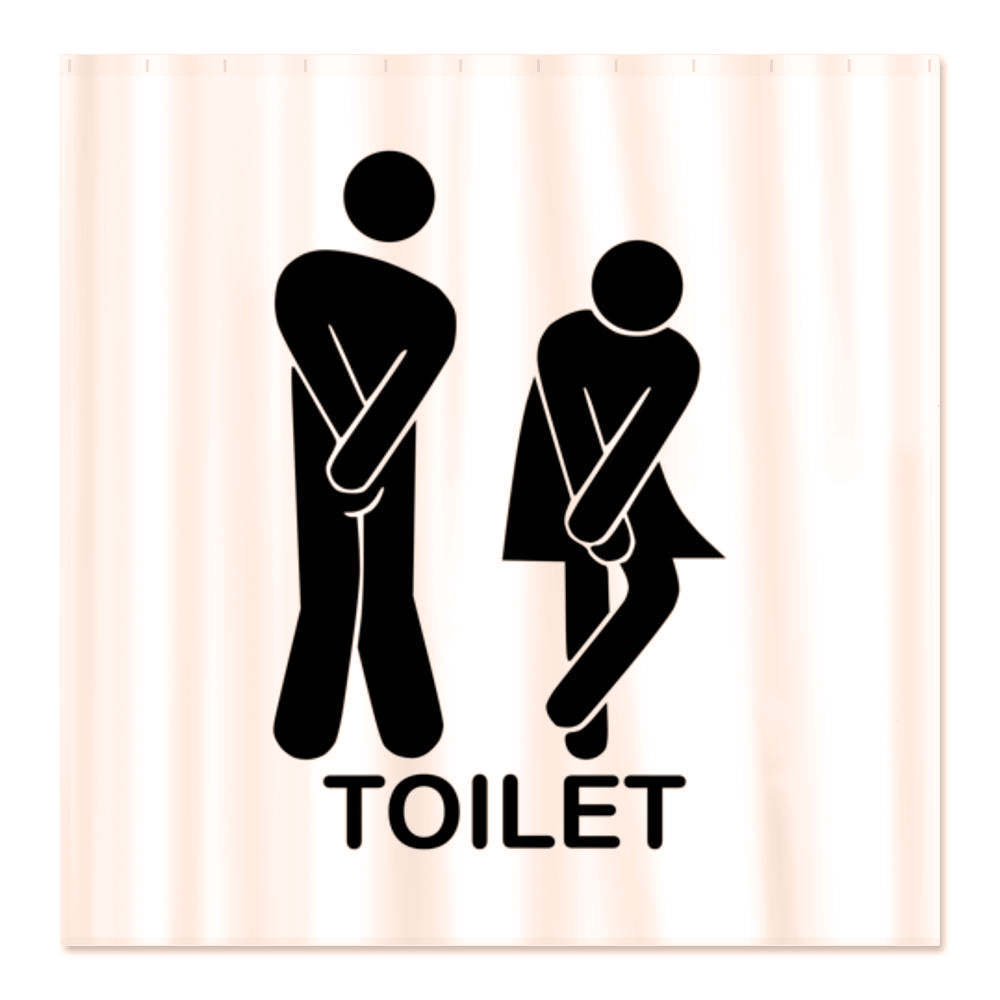Often taking poop far from home may be difficult
Sometimes we need to poo but we are not in the comfort of our home where we can release our bowels freely, so while someone may have no problem pooping at someone else’s house, someone else couldn’t make it, and they are often women. However, this situation is not entirely related to people going to a stranger’s house but it may happen to a couple, too. Anyway, this is just an example of where this may happen because this problem occurs even at work, or wherever we are afraid to poo.
Pooing is not only normal, but it’s also necessary, though. Our bodies are built to do it. The entire colon is about five feet long which is a tubular organ, and it forms part of the large intestine and snakes around the small intestine. The colon removes what we need from partially digested food, nutrients, and electrolytes, then carries the rest waste, also known as stool to the rectum before it leaves the body through the anus. It’s a precise system, one so efficient that we tend not to notice it until something goes wrong. “We couldn’t have planned our bodies better if we tried ourselves”, the consultant gastroenterologist and endoscopist Dr. Lisa Das said.
“The body is an amazing organism”. Yet too many of us, particularly women, are ashamed of this bodily function to the point of trying to stop ourselves from performing it by holding our bowel movements. Poo shame is real. It has a technical term: parcopresis or “shy bowel syndrome”.
Professor Nick Haslam, who is the author of Psychology In The Bathroom, explains that parcopresis is the inability to go for a poo in places that lack privacy where other people are perceived or likely to be around. For instance, at work in a public bathroom, or when a roommate or partner is at home with you.
“People who experience it have a fear of defecating in situations where they might be overheard or ‘over-smelled’ and that fear creates an inhibition that makes them unwilling to use public restrooms”, he says. “In extreme cases, it may be so disabling that people are unwilling to travel any distance from home lest they be caught in a place where they are unable to ‘go'”. Parcopresis is a psychological problem that, researchers have concluded, falls under the umbrella of social anxiety disorders. It’s thought to affect women more commonly than men who, conversely, are more likely to be affected by something known as paruresis or “shy bladder syndrome”. But why women in particular? Nick says there are two reasons.
“First, parcopresis is mainly driven by intense anxiety, and women are more susceptible to all anxiety disorders for reasons that are not well understood but are likely to have social, psychological, and biological components. Parcopresis, therefore, is consistent with the general pattern. Second, there is a clear gender double standard around hygiene that ties into parcopresis. Women are socialized to be more disgusted by excretion and excrement, and to be more concerned about the cleanliness and purity of their bodies and eliminating its smells”.
Patriarchal norms come into play. Of course, there are exceptions but, broadly, while little boys fart competitively among themselves, girls are not supposed to admit that they poo, let alone that they ever pass wind. Young men are given plaudits for farting loudly while young women learn to hold it in, contorting themselves in order to conceal their bowel movements from the world.
We have, as Nick notes, traditionally been socialized to see femininity and excretion as incompatible. “As a result”, he adds, “the idea of being witnessed while defecating is more fraught for women on average than it is for men, and higher rates of parcopresis are one outcome of that”. And so those little boys grow up to become men who can take as much lovely “alone time” as they want on the toilet while those little girls take on the mental load of poo shame and learn to perform a complex routine. They rush, stuff the toilet bowl with toilet paper to muffle the sound of pooing and try to get it all over and done with as quickly as possible so people think they were merely going for a pee.
Parcopresis might be a psychological problem but it has physical repercussions. Last year, a report from the Bowel Interest Group found that constipation cost the U.K.’s National Health Service £162 million in 2017-18. £71m of that was spent on unplanned, avoidable emergency admissions and £91m was spent on prescription laxatives. In that period, 71,430 people in England were admitted to the hospital with constipation, that’s 196 people a day. And, wait for it, women accounted for about 60% of admissions.
A 2015 Canadian study found healthcare costs, related to constipation, cost the country almost $214 million, including close to $61 million for hospitalizations. Lisa says we must take this seriously. “I think there is something, particularly among women, that has instilled the idea that this is not to be talked about. That going to the toilet is disgusting or unclean. But more and more people are learning that they must discuss their bodily functions because defecation plays such a major role in our health”. “When we wake up in the morning”, she adds, “the whole gut has a diurnal rhythm. The gut has its maximal contractions in the morning and after eating. That’s completely normal. If you hold it, you start to inhibit this normal activity and what we’ve found is that ignoring the ‘call to stool’ can seriously throw this rhythm off. There was an experiment in which medical students were asked to put off going to the toilet for seven days and it found that for some of the participants it actually took six to eight months to regain their normal colonic motility after that period of suppression”.
More than this, Lisa explains, there are medical complications associated with putting off going for a poo. “The problem with holding in stool, with not paying attention to it, is that the more you deny yourself going to the bathroom, the more fluid is absorbed from the stool in the bowel”, she says. “It then becomes harder and harder and harder. And then, because it is painful to pass, people don’t want to go to the toilet and a vicious cycle occurs”. On top of that, Lisa adds that “solid stool” can cause people to strain which can “tear the tissue in the anus, causing fissures or making hemorrhoids worse”. However, Lisa stresses, there are no sinister lifelong problems caused by putting off going for a poo, it doesn’t increase your colon cancer risk, for example, but you can cause your bowel to become unregulated and inflict serious discomfort on yourself”.
Poo is always contrasting. It is at once a necessary bodily function and a primordial object of disgust. In Britain, there has historically been a perverse and ironic pride that embraces toilet or scatological humor. It’s woven throughout the writing of Chaucer, Shakespeare, and Jonathan Swift, all of whom were alive before proper sewage systems and therefore saw a lot more feces than most of us are likely to in our lifetimes. Indeed, the historic obsession with it as a source of humor could actually tell us something about why pooing is still so taboo. We make fun of things that we are scared and ashamed of, that’s why so much comedy reflects social anxieties.
“Feces is a source of contamination and disease, with fecal-borne diseases still killing huge numbers of children worldwide”, Nick notes. “It makes sense to dislike it, to put it out of mind as well as out of sight, and thus to have taboos around it. Shame attaches to disgusting things and for most of us, there is still some shame and reticence attached to defecation. In the case of parcopresis, that shame is just stronger and more inhibiting”. We need to find a way to overcome this shame, though. We need to see pooing as just another thing that our bodies do. Perhaps, even, to see it as a healthy sign. After all, it means that our body is working; anyone with a condition such as Crohn’s disease, ulcerative colitis, or irritable bowel syndrome will tell you how much they long for regular, healthy pooing.
In severe cases, Nick explains that “there are behavioral interventions that treat parcopresis like an anxiety disorder. They can involve interrogating and challenging distorted beliefs about how bad it would be to be overheard mid-poo (would the overhearer really think negatively of you?), teaching relaxation exercises to make the person less seized up in a public restroom, and gradually exposing people to increase public, non-home toilets so their bowels learn to be less shy”. But when too many bathrooms still don’t have floor-to-ceiling cubicles, making them anything but private, surely some of the responsibility for sorting this out lies not with individuals but with society as a whole. “We can ensure that public facilities feel secure”, Nick says but adds that “we can also become more matter-of-fact about defecation so it becomes less unspoken and embarrassing (e.g. use fewer euphemisms), and challenge the gendered double standard by which women are judged more negatively for revealing the awful truth that they, too, defecate”.
I think, however, that the idea that man has of woman: beauty, cleanliness, order, and self-care, but also the very idea women want to give, is intrinsically at odds with the theme of bodily functions. This is not the case for males, since they have never given such a clear and limpid image of themselves, although lately, men have come closer to the canons required of women. However, there is much more freedom of choice in the male world. So perhaps the difficulty lies precisely in the idea that one wants to give and the idea that one seeks in the other. Certainly, women must be felt less embarrassed to talk and helped to reduce anxiety about poop, but I do not know if it will be possible to reduce the intimacy gap between men and women about this matter, as much as two male friends or female friends, for example, do because they have the same body and the same expectations.
Surely, those who want to do a poo at Paul’s house are not suffering from parcopresis.
Source refinery29.com

